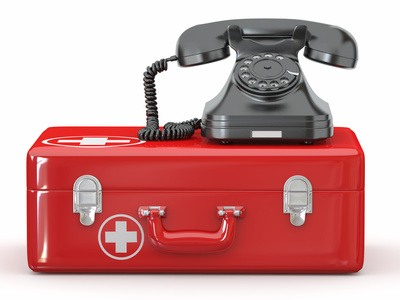Reliable communication with your dysautonomia physician/staff is critical to your child's well-being and care. Part of regular communication occurs at your child's doctors appointments. There are times you will also need to call the doctor/staff for quick feed-back. Sometimes sending a fax or email to the doctor/staff can be a helpful tool.
- It is not necessary to always speak with the doctor. Often the staff can check with the doctor for you and get back to you more promptly.
- Check with your pediatrican or GP first. They are your first line of communication and they will let you know if you need to contact your specialist.
- Faxing or emailing the doctor/staff member can be useful when you have a question that does not require the doctor's immediate attention or in the circumstance when leaving a message is not optimal. Check with the staff to see if your doctor recommends this form of communication.
- Do not send rushed and panic stricken messages via email or fax. Think your wording out carefully and be short and precise. These doctors do not have time to read and reply to long winded emails.
- Time is valuable to all of us. If you respect the physician's time, you are more likely to receive reciprocation. Do not abuse communication rights.
- Be polite. Do not take your frustrations out on staff. It's always wise to remember the 'magic words' of please and thank you. Polite communications always work to your advantage.
DYNA has organized a standardized format for physician communication faxes or emails for your convenience. Below is sample wording for you to review.
For urgent situations always CALL the doctor's office!
Sample Wording of DYNA Suggested FAX or Email Format is Below:
TO: |
Dr. Smith |
DATE: |
January xx, xxxx |
FROM: |
|
SUBJECT: |
Patient's Name Patient's Date of Birth Patient's Diagnosed Condition |
COURSE OF ACTION: |
"Please Call Me" or "Read at Your Convenience" (as applicable) |
COMMENTS: |
Dear _____________,
The comments should, as concisely as possible, summarize your question or your update to the doctor.
If you have a question for the doctor: In one sentence - state your question first.
In concise bullet form, provide any background information which may help the doctor answer your question without having to consult the patient's file. For example: provide the medications and dosages the patient is taking. You may wish to provide a quick summary of the last appointment/conversation you had with the doctor and what actions the doctor suggested.
Put yourself in the doctor's position: what information would you need to answer the question as quickly as possible?
Always say: Thank you.
Close with your full name
Recommended Materials
Other Pages:
Finding the Right Doctor for You





